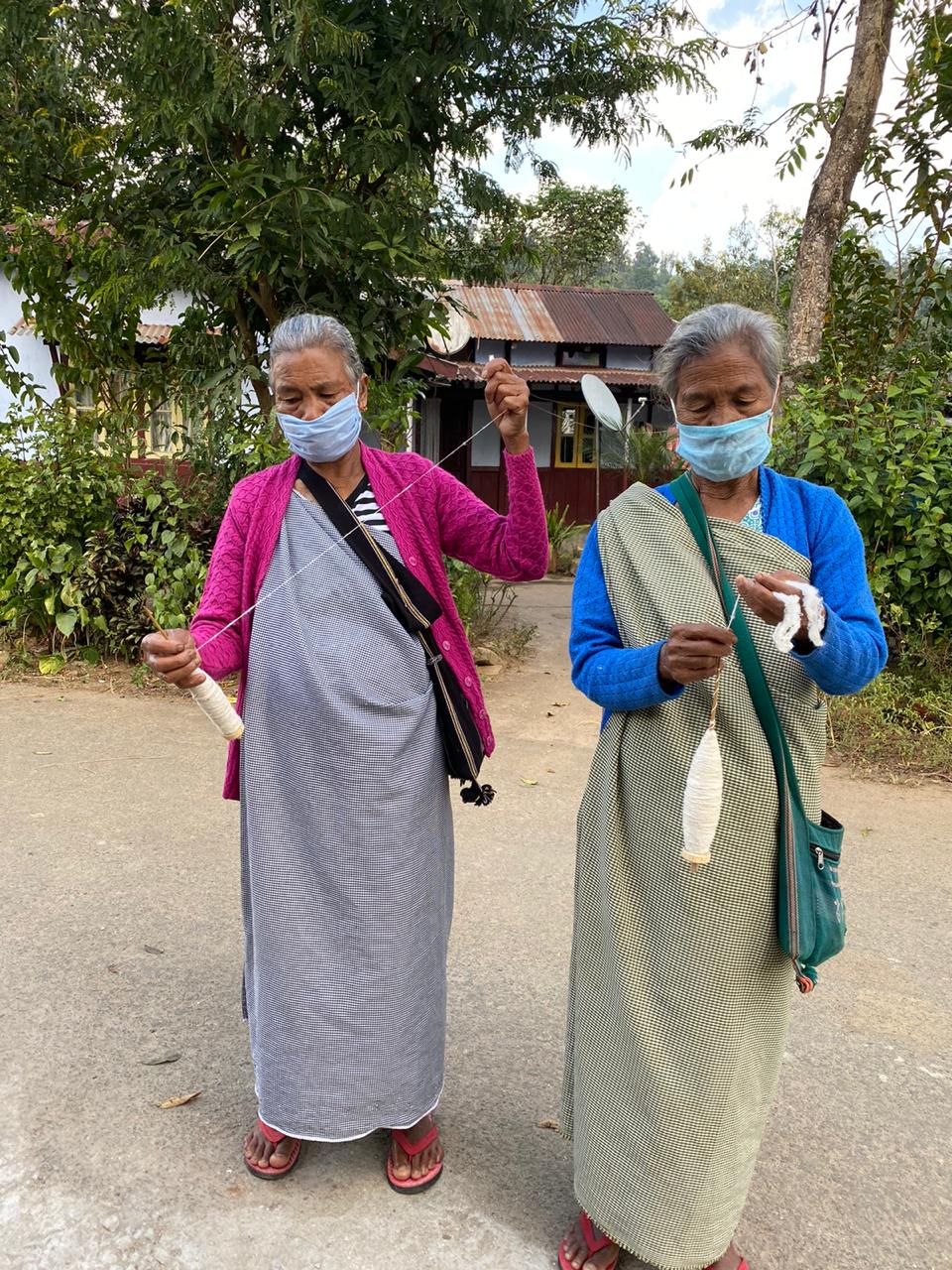‘Age is just a number’ is a common saying that we have all heard or have come across in today’s day and age. Fifty-five-year-old Wing Lamare and 65-year-old Elistra Lamare are two senior citizens of Madanrtiang community, Ri-Bhoi district who are popularly known to have devoted their entire lives to rearing silkworms from a very young age.
The two sisters have been rearing silkworms now for almost 30 to 35 years. Coming from an underprivileged family, they started rearing silkworms to support themselves and help their family financially. “Since farming was the only activity that they are engaged in, rearing silkworms was another reason for us to help our families financially. With the money that we received from selling the silkworms and the cocoons, we were able to put food on the table and support our families,” Elistra said. For both of them, rearing is now a primary activity that adds to their income.
Even though the two women have countless years of experience, they said it is never adequate for them. They always find ways to learn new things and strive for perfection, creating more room for improvement.
Driven by motivation and the urge to inspire others, the women attended a training programme on Eri silk production (silkworm rearing, spinning, dyeing, and weaving) at Khweng community, Ri-Bhoi district earlier this month. The NESFAS team along with Eri Weaves experts Rikynti Syiem and Lastnokhel Jalong facilitated a three-month workshop and taught the community members the basic techniques of rearing silkworms and weaving from then on till December 4, 2020. Wing said, “So far, this workshop is like a revision for us about rearing silkworms but we have learned so much about the various techniques of weaving, dyeing, etc. We are keen to learn more and pray that we can share what we have learned and will learn with future generations.”
When asked about their views and thoughts about the programme, they both replied collectively that the training would tremendously help in enhancing their skills and knowledge in this sector, which can further boost their family income and knowledge at the same time. Both women are determined that their future generations will carry-on this activity to ensure that their health and well-being are in place.
Elistra said, “We started rearing silkworms because we did not have any jobs at the time. But now, we have grown so fond of it that it has become our livelihood.”
 Translate
Translate





